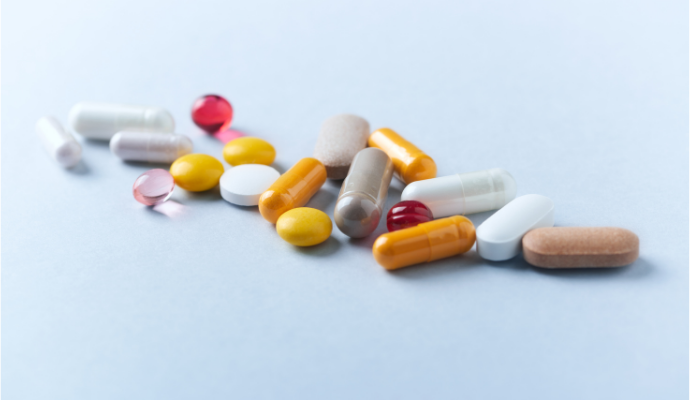NIH Initiates Trial to Evaluate COVID-19 Antibody Therapy
Researchers will observe if the COVID-19 antibody therapy from Brii Biosciences can safely reduce the duration of COVID-19 symptoms, and eliminate the presence of viral RNA in the body.

Source: Getty Images
- The National Institutes of Health (NIH) recently announced that a Phase 2/3 clinical trial has begun to evaluate a combination investigational monoclonal COVID-19 antibody therapy.
The trial, ACTIV-2, sponsored by the National Institutes of Allergy and Infectious Diseases (NIAID), part of NIH, will evaluate the safety and efficiency of the two antibodies, BRII-196 and BRII-198, manufactured by Brii Biosciences.
ACTIV-2, led by the NIAID-funded AIDS Clinical Trials Group (ACTG), will initially enroll 220 participants with mild or moderate COVID-19 who are at risk for disease progression from sites around the world.
Participants will be randomized to one of the two treatment groups. Half of the participants (110) will receive BRII-196 and BRII-198 through intravenous infusions, while the remaining individuals will receive a placebo.
NIH noted that the doses being used in the ACTIV-2 trial are supported by data on each antibody from ongoing Phase I trials.
Participants will either attend clinical visits or receive at-home visits to track their condition for 72 weeks following the trial. But an independent Data and Safety Monitoring Board (DSMB) overseeing the trial will review the data collected at 28 days.
Overall, the study design allows researchers to observe if BRII-196 and BRII-198 are safe when used together and whether the therapy can reduce the duration of COVID-19 symptoms and eliminate the presence of viral RNA in the body.
The small group of participants in the trial allow researchers to successfully uncover the effectiveness of the therapy and then administer it to a larger group, NIH said.
If both antibodies prove effective, the trial will move to Phase 3 and will enroll nearly 622 additional outpatient volunteers, for a total of 842 trial participants. The participants will be randomized to receive the therapeutic or a placebo.
The primary objective of the Phase 3 trial will be to determine if the therapy prevents either hospitalization or death by 28 days after study entry.
ACTIV is a public-private partnership announced back in April to develop and coordinate research strategy for boosting development of some of the most promising COVID-19 treatments and vaccine candidates.
The partnership includes government organizations such as HHS, CDC, FDA, and the European Medicines Agency, as well as pharmaceutical companies, including AbbVie, Amgen, AstraZeneca, Bristol Myers Squibb, GSK, Johnson & Johnson, Eli Lilly and Company, Merck & Co, Novartis, Pfizer, Roche, Sanofi, Takeda, and Vir Biotechnology.
At the beginning of August, the ACTIV 2 study began with an evaluation of Eli Lilly’s COVID-19 antibody, LY-CoV555. But NIH said that due to the initiation of the BRII-196 and BRII-198 in the ACTIV-2 study, the LY-COV555 study will be closed to enrollment.
At the end of October, NIH launched a Phase 3 clinical trial to evaluate the safety and efficiency of three immune modulator drugs in hospitalized COVID-19 patients, including Johnson & Johnson’s infliximab (REMICADE), Bristol Myers Squibb’s abatacept (ORENCIA), and Cenicriviroc (CVC), an investigational late-stage agent developed by AbbVie.
The ACTIV-1 Immune Modulators (IM) trial will enroll about 2,100 hospitalized adults with moderate to severe COVID-19 to determine if the therapeutics can restore balance to overactive immune systems in coronavirus patients.
Additionally, researchers will uncover different combination treatment regimens concerning illness severity, recovery speed, mortality, and hospital resource utilization.
At the same time, Humanigen announced that the first patient was dosed in an ACTIV-5 clinical trial evaluating its COVID-19 treatment, lenzilumab, with remdesivir in hospitalized coronavirus patients.
ACTIV-5 will determine whether certain approved therapies or investigational drugs in late-stage clinical development show promise against COVID-19. The information from the trial will determine if researchers need to push into larger clinical trials.
Most recently, the company announced that lenzilumab had an estimated 37 percent more recoveries observed in patients who received lenzilumab versus the current standard of care.
Notably, no serious adverse events have been linked to lenzilumab.
